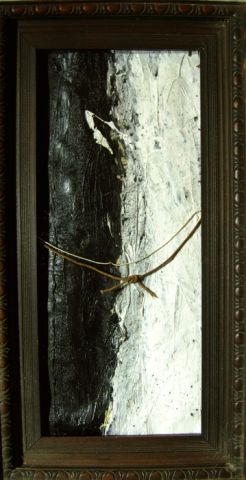In response to a discussion with David Minton on my post #7.
Let’s look at some definitions of self, identity and obliteration; we seem to be going in circles around the meaning of these words.
From Webster’s New World Dictionary:
self: 1. the identity, character, etc. of any person or thing 2. one’s own person as distinct from all others 3. one’s own welfare or interest
identity: 1. the state or fact of being the same 2.(a) the state or fact of being some specific person or thing; individuality (b) the state of being as described
obliterate: 1. to blot out; efface 2. to destroy
efface: 1. to rub out; erase 2. to make (oneself) inconspicuous
I understand there to be no distinction between identity and self, they are one and the same.
If you try to place self and identity in a hierarchy of intentionality, you could perhaps say self exerts intention and identity displays motivation, with the distinction being self and intention are less defined than identity and motivation. Identity and motivation are often specifically named. But I believe it is erroneous to make this distinction because what I intend is the genesis of my motivation. I think self and identity have come to appear different and distinct only because identity is often defined in concrete terms such as I am a parent, I am a teacher; whereas, the self often remains nebulous and undefined as some part of ourselves which guide and direct our being. Our self is our identity and our identity is our self.
This argument of the non-existence of self and that we are made top to bottom by social influence is not something I have studied in depth yet but I have encountered many references to it recently. I agree (as far as I understand the argument) that we are entirely made by social influence and the self has very little, if no self determination, we can make choices yes, but the way we come to make a choice is determined by all the social influences we have ever experienced in our lives. And I believe this supports my argument that the self is defined and obliterated by its context. The self is defined by the context in which it finds itself, and this context obliterates the self, not always as a complete annihilation, but often just as a diminishment.
The concept of the self as some directing, autonomous, pure part of our being has been challenged, and I think rightfully so. We, none of us, exist without reference to what is outside ourselves, so a view of the self as somehow untouched by the exterior we experience, yet in control of our being is illogical. I refer to the self because whatever is being debated about the existence of the self at the moment, we each of us exist in time and perceive of our existence in the world. So an exploration of self is still valid.
I am one of six billion, no one has exactly my DNA, but I share the same 99.9% of everyone else’s DNA. No one has had exactly my life experiences, but our individual experiences are similar enough that we are all able to understand one another’s experience, that is, as in contrast to understanding what it is like to be a cuttlefish. No one has experienced the exact things that I experience in moments of time, but we all experience the same synchronous moments of time. I am unique, but I have to admit, I find it hard to say what is unique about me.
www.jlbfineart.com





